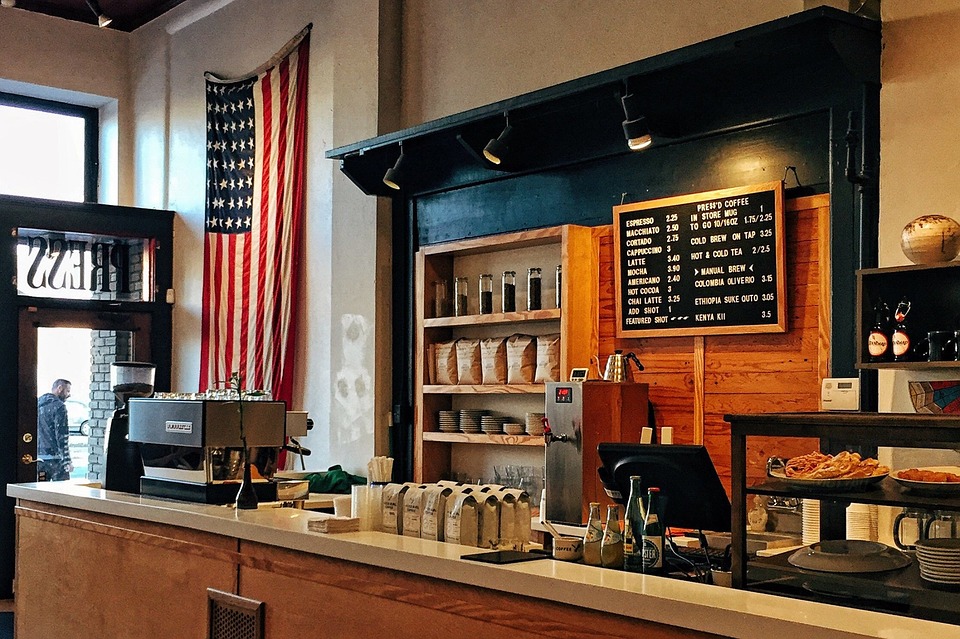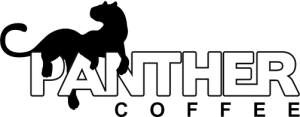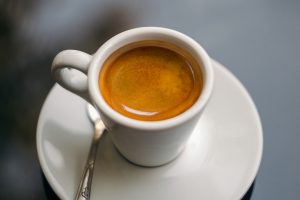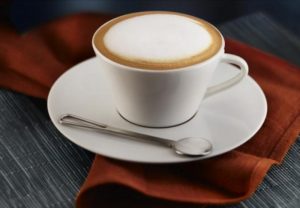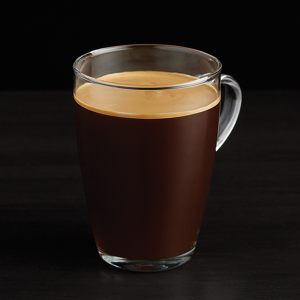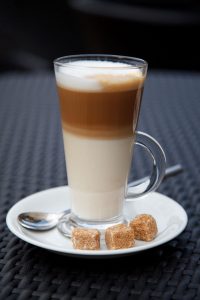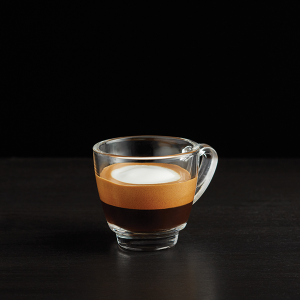Best Coffee Beans USA – West Coast vs East Coast
New York; the city that never sleeps. Can we attribute that to the insanely high amount of caffeine available for literal 24 hour consumption? Probably. America loves coffee, and they adore great coffee. We all have our preferences on our Java; black versus cream and sugar, hot coffee versus iced or cold brew, but unifying caffeine addicts the world over is a love of a high-quality coffee bean.
The fact is, the coffee industry is booming (and has been for decades) and everyone wants a cup. Whether you like a strong, dark Columbian bean or a medium roast with light, refreshing floral undertones there is something for everyone in America.
We’ve curated this list of the Best Coffee Roasters in all 50 states (see, we don’t pick sides) from MentalFloss.com!
“Americans have an intimate relationship with their coffee. It’s the drink that gets them going, the first hit of flavor in their day. It’s the steaming (or iced) cup that sets the tone for what’s to follow. And at a time when tastes have evolved past watery, gets-the-job-done brews into the bold, the origin-specific, and the fair trade certified, it had better be good.
With so many interesting coffee roasters out there, including many who have set up shop in just the past few years, selecting the best one in each state was quite difficult. We researched our picks carefully, with an eye for detail that honors the studious methods of coffee innovators across the country.”
Best Coffee Bean Roasters in America
- Alabama – Mama Mocha’s Coffee Emporium & Roasters
- Website: Visit mamamocha
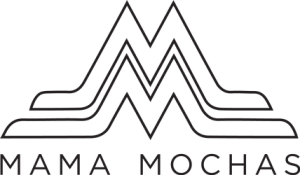
“Mama Mocha’s makes the best coffee around. Owner Sarah Barnett Gill and her team get extra credit for blends that are both well crafted and highly eclectic, like Dawn of the Dead, a house roast with an extra caffeine jolt, and the whiskey-infused Black Moonshine.”
- Alaska – Kaladi Brothers Coffee
- Website: Visit kaladi

“In coffee-obsessed Alaska, Kaladi Brothers stays ahead of the curve with stringent quality standards and a splash of ingenuity. The company, which operates 13 cafes and began in 1986 as a roadside stand, selects only organic, shade-grown beans, then air roasts them—a process that many prefer for its clean, uniform flavor. They roast more than a million pounds of beans each year!”
- Arizona – Cartel Coffee Lab
- Website: Visit cartelcoffeelab

”Cartel Coffee Lab’s methods are no secret: Just stop by their Tempe warehouse for a tour, or browse their website for ratios and other nitty gritty details. Transparency aside, Cartel’s sophisticated roasting process isn’t easily duplicated. The same goes for its direct sourcing program and stringent barista training, which suffers no slouches. Taken together, Cartel’s process has helped the roaster and café become one of Arizona’s premier coffee destinations.”
- Arkansas – Onyx Coffee Lab
- Website: http://onyxcoffeelab.com/
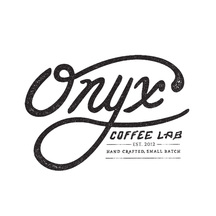
“Onyx has found an enthusiastic audience in Fayetteville, who come for their daily cup and for special events like roasting classes and an annual barista throw-down. Onyx prizes unique tasting notes like “mulled wine” and “brouléed grapefruit.”
- California – Four Barrel Coffee
- Website: http://www.fourbarrelcoffee.com/
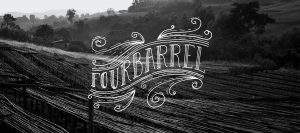
“What does it take to be the best roaster in hip, caffeinated California? Start with a sourcing team that spends most months on the road seeking out the best beans from Africa, South America, and beyond. Then, using a vintage German roaster, turn out light, flavorful coffee that draws long lines of customers all hours of the day. In addition to mind-blowing coffee, Four Barrel offers classes like a “Water Quality Seminar” aimed at making you a better at-home brewer.”
Read more about the importance of water quality when making coffee by clicking here.
- Colorado – Boxcar Coffee Roasters
- Website: http://www.boxcarcoffeeroasters.com/
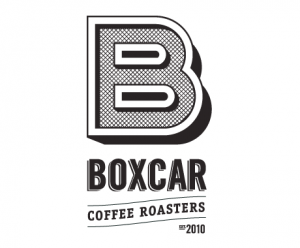
“To bring out the full flavor in every cup, Boxcar employs a special boiling method in its two cafes that utilizes custom-made flasks. Its old school meets new school, with very flavorful results.”
- Connecticut – J. René
- Website: http://jrenecoffee.com/
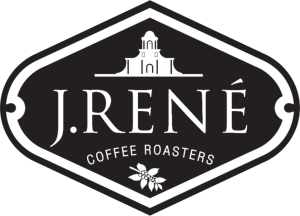
“Proprietor José René Martínez Onofre thinks he might have actually tasted his first cup of coffee before he learned to walk. That early love affair led him to open his first shop in West Hartford in 2012, an “artisanal coffee gathering place” that’s as much a social hub as a java shop. Martínez is fanatical about bean sourcing and brewing techniques—French Press as well as Chemex pour-overs—which is probably why he’s earned rave reviews since he first unlocked his doors.”
- Delaware – Notting Hill Coffee
- Website: http://www.nottinghillcoffee.com/
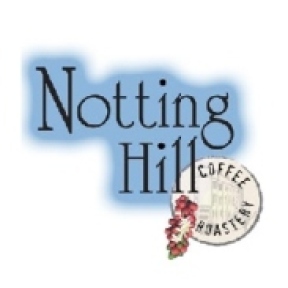
“Notting Hill owner Amy Felker keeps her coffee roaster in the front window of her café in Lewes, but it’s not much of a distraction: she roasts most of her annual 40,000 pounds of coffee at night. Felker’s obsession with coffee is all-encompassing: she deals in flavored beans, often derided by coffee purists, and has found that some self-mixed concoctions wind up being her biggest sellers.”
“Panther’s reputation for an excellent cup has done more than expand their Miami-area footprint: their coffee is known all over the country. Locals can walk into their storefronts and get information sheets about growers; beans are available online. Not bad for a business that started serving cold brews out of a food truck.”
- Georgia – Cool Beans Coffee Roasters
- Website: http://coolbeanscoffeeroasters.com/
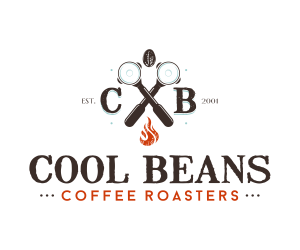
“Best of Atlanta” winner in 2015, Cool Beans tackles more than 40 different varieties of coffee in a roaster they’ve dubbed Big Red.”
- Hawaii – Big Island Coffee Roasters
- Website: http://bigislandcoffeeroasters.com/
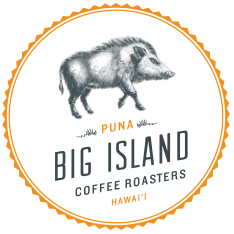
“As the only state that grows coffee in commercial quantities, Hawaii might be home to some of the freshest beans in the U.S. Big Island doesn’t have a retail front, but its distinctive artisanal beans are sold all over the territory and they’ve picked up virtually every award out there—the USDA even honoured them with a grant for their continuing efforts to improve local coffee quality. If you ask nicely, they might even give you a farm tour.”
- Daho – Doma Coffee
- Website: http://domacoffee.com/

“Staunchly supportive of fair trade, the coffee buyers at DOMA go through considerable hoops—and expense—to support smaller, organic farmers. DOMA never skirts corners, shipping their coffees in recycled bags, utilizing a roaster that uses 80 percent less gas to operate, and making sure every cup served is as environmentally responsible as possible.”
- Illinois – Intelligentsia
- Website: http://www.intelligentsiacoffee.com/
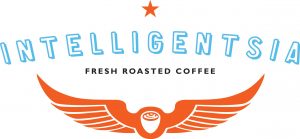
“In business for over 20 years, Intelligentsia has spread all over Chicago owing to demand for their specialty craft coffees. The key to their success: standing side-by-side with growers to develop and select their preferred beans.”
- Indiana – Bee Coffee
- Website: http://www.beecoffeeroasters.com/
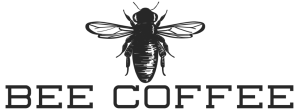
“Indianapolis Monthly named Bee Coffee Roasters one of the best indie coffee roasters in the city, thanks partly to their self-imposed limitations. The company uses only a five-pound roaster for beans, which means small and frequent batches of ultra-fresh coffee with a different flavor every time. Bee also likes to spend time on aesthetics: co-owner Andy Gilman spearheads a “League of Lattes” milk art competition in the city.”
- Iowa – Sidecar Coffee Roasters
- Website: http://www.sidecarcoffeeroasters.com/
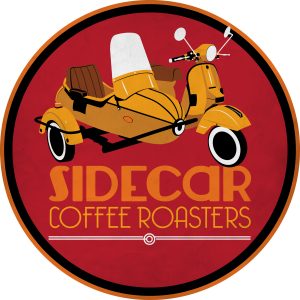
“Home-roasting began as a hobby for Jed Vander Zanden, but after he and his wife moved to Cedar Falls, Vander Zanden decided to launch his own business. He opened Sidecar in 2012, and java aficionados are welcome to swing by the downtown location on Washington Street to watch as he roasts small batches of specialty, direct-trade coffee beans from around the world. You can buy them at food co-ops, markets, and coffee shops around Iowa, or online.”
- Kansas – PT’s Coffee Roasting Co.
- Website: http://www.ptscoffee.com/
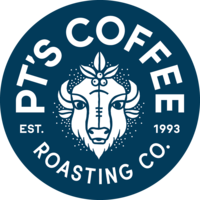
“Photojournalist Jeff Taylor, and his roommate, fast food chain manager Fred Polzin, founded PT’s (P for Polzin, T for Taylor) in 1993 after Taylor tried—and failed—to find a local outlet that brewed an amazing cup of coffee. Taylor eventually convinced Polzin to give roasting a try, and in 1997, PT’s reestablished itself as a roasting operation, and began sourcing beans from skilled artisan farmers around the world. Nearly 80 percent of their coffee is acquired through direct trade, meaning the company buys beans straight from the growers, cutting out the middlemen. In 2009, Roast magazine named PT’s their “Macro Roaster of the Year,” and you can now find the company’s product across the Midwest and in select East Coast coffee shops.”
- Kentucky – Sunergos Coffee
- Website: http://www.sunergoscoffee.com/
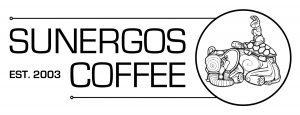
“Louisville is famous for being the home of the Kentucky Derby—but it’s also becoming known as one of the South’s go-to coffee destinations. Sunergos Coffee (which gets its name from the Greek word meaning “working together”) is a local coffee franchise and micro-roastery that sources sustainably harvested, responsibly farmed beans. Swing by the Woodlawn Avenue outpost, and you might even catch the roasters in action: their 1500-foot micro-roastery is at the back of the store, and is clearly visible through a glass wall separating the production facilities from the café area. And though Sunergos is still largely a regional operation, it has a national reputation: In 2014, it won the “America’s Best Espresso” competition at Coffee Fest, an annual trade event for tea and coffee enthusiasts.”
- Louisiana – Rêve Coffee Roasters
- Website: http://revecoffeeroasters.com/

“Deep in the heart of Cajun Country, you’ll find Rêve Coffee Roasters—a coffee shop/micro-roastery in Lafayette that was founded by two Louisiana natives, Nathanael Johnson and Christopher Pickle. Recently, they moved the business to a much larger location on Jefferson Street, which allows them to serve meals and use the bar space so employees can roast beans directly on site. Rêve operates a wholesale business, and sells its beans to local cafes, restaurants, and grocery stores. Many of the bean varieties come from Royal Coffee New York, but Rêve is also establishing direct trade operations with farms in Guatemala and El Salvador.”
- Maine – Tandem Coffee Roasters
- Website: http://www.tandemcoffee.com/
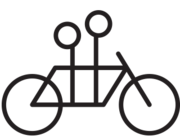
“Tandem sources its beans from all over the world, and on Fridays patrons can visit the company’s East Bay location to enjoy free tasting sessions and watch the roasting process. And if you love coffee and music, you can sign up for Tandem’s “coffee and vinyl club,” a partnership with online record sellers KMA in which subscribers receive both a new record and a different bag of Tandem’s beans each month.”
- Maryland – Ceremony Coffee Roasters
- Website: http://www.ceremonycoffee.com/

“Ceremony Coffee Roasters sources coffee beans from four continents and imports them to their flagship location—a storefront/roastery in Annapolis (other locations are in Baltimore and D.C.). Java lovers who visit the franchise’s West Street location can enjoy a seasonal coffee menu, and at the building’s back they can watch the roasters in action (or, if interested, partake in a specialty brewing class).”
- Massachusetts – Barismo Coffee Roasters
- Website: http://www.barismo.com/
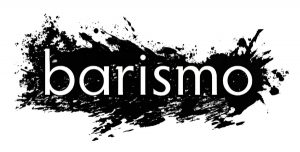
“Barisimo is small, yet flourishing—and more importantly, it’s ready to innovate. Founded in 2008, the roastery operates three Barismo cafés in the greater Boston area (Barisimo 171, a shop at the roastery’s original location in Arlington, operates a lab-style coffeebar). Barisimo sources direct trade beans from around the globe, but the roastery is equally known for its creative approach toward coffee: They recently developed a patent-pending cold-brew injector to make nitrogenated cold brew kegs.”
- Michigan – Madcap Coffee Company
- Website: http://madcapcoffee.com/
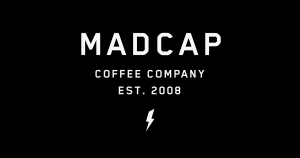
“Madcap Coffee Company co-founders Trevor Corlett and Ryan Knapp—who launched their business in 2008—source their beans directly from farms or cooperatives around the world. After sampling thousands of coffees, they select 15 to 20 to roast and sell. With that kind of attention to detail, it’s no surprise that their product is carried in select coffee shops around the country, from San Antonio to New York.”
- Minnesota – Paradise Coffee Roasters
- Website: http://paradiseroasters.com/

“If the word “artisanal” appeals to you, Paradise is the way to go. Since 2002, founder R. Miguel Meza and his team have been hand-selecting and micro-roasting the very best blends from growers in Hawaii, Costa Rica, and Ethiopia.”
- Mississippi – Beanfruit Coffee Company
- Website: http://beanfruit.com/
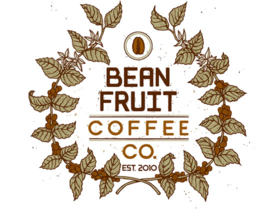
“BeanFruit proudly focuses on single-origin coffees and educating consumers about the beans in their cup. “We want our customers to be aware of what beverage they are drinking, where it came from, and how it affects coffee farmers around the world,” says founder Paul Bonds. Try BeanFruit’s Kenya Nyeri Chinga Peaberry for a bright, complex roast with notes of melon and nectarine.”
- Missouri – Oddly Correct
- Website: Visit oddlycorrect
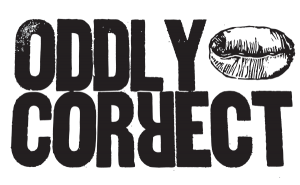
“The self-described “coffee zealots” at Oddly Correct are on a mission “to freak out your morning cup.” If that sounds like something you’d enjoy, head over to their website or check out the café on Main Street for a cup of Space Monkey Seasonal Espresso, which boasts a creamy body, raw-sugar sweetness, and tropical fruitiness.”
- Montana – Black Coffee Roasting Co.
- Website: http://www.blackcoffeeroastingco.com/

“If you like your coffee dark and your products green, head over to Black Coffee Roasting Co. in Missoula. The company and café’s blends are all sustainable, craft roasted, and 100 percent organic. They’re also delicious. For an indulgent sip, try the rich-bodied variety called The Hunt, which promises hints of baker’s chocolate, strawberry, honey, and graham cracker.”
- Nebraska – Beansmith Coffee Roasters
- Website: http://www.beansmith.com/

“Seasonal sourcing isn’t the first thing that comes to mind when you think of coffee, but the heartland-based Beansmith Coffee Roasters have built a business around finding the freshest, most vibrant beans for every cup. For new autumnal flavors, pop into the Old Market Café on Harney Street in Omaha and try the smoky, clove-flavored Phoenix blend.”
- Nevada – Hub Coffee Roasters
- Website: http://www.hubcoffeeroasters.com/
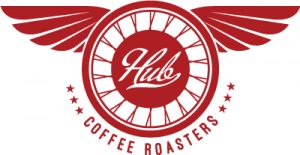
“Hub Coffee Roasters were founded on two ideals: coffee and community. (Don’t think coffee is an ideal? Just talk to them.) The company now has an online shop and three Reno locations and has recently begun sourcing its own beans from South America. A good pick: the Peruvian Nuevo Trujillo roast, with notes of plum and dried fruit.”
- New Hampshire – Flight Coffee Co.
- Website: N/
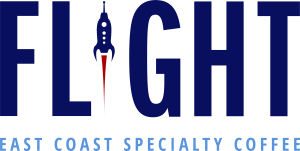
“Flight Coffee Co. founder Claudia Barrett began with a dream and a passion for fresh, farm-to-pot coffee. Today she’s the leader of a small army of obsessive coffee roasters who regularly take classes to keep up with the latest science, techniques, and trends. Visit the roasting lab and tasting room in Bedford or treat the coffee connoisseur in your life to a monthly bean subscription.”
- New Jersey – Modcup Coffee
- Website: http://modcup.com/

“Founded by Justin Hicks and Travas Clifton in 2013, Modcup prides itself on serving up the freshest roasts, and sells all of its coffee within 18 days of its roast date. In addition to Modcup’s Jersey City coffee shop and roastery, the company built a unique mobile roastery inside a restored 1969 Citroen H-Van, which was once used to deliver fresh bread in France. The truck now splits its time between serving fresh coffee outside the Hyatt Regency Hotel in Jersey City and making appearances at parties and fairs in the Tri-State area.”
- New Mexico – Michael Thomas Coffee
- Website: http://www.michaelthomascoffee.com/
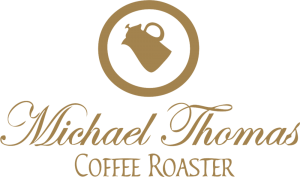
“For over a decade, local coffee roaster Michael Thomas and his two daughters have created unique blends and single origin roasts for customers at their Albuquerque shops. Thomas and his team experiment with every new batch of beans they order to find the perfect roast profile for each. In recent years, Thomas has opened an online store as well. In addition to roasting their own beans, the two Michael Thomas Coffee shops in Albuquerque also host regular coffee classes, teaching coffee lovers about coffee history, and how to make different coffee varieties.”
- New York – Gimme! Coffee
- Website: http://gimmecoffee.com/
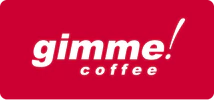
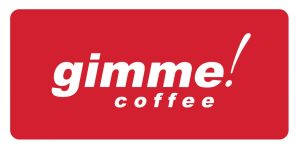
“Winner of Roast magazine’s 2013 “Macro Roaster of the Year” award, Gimme! Coffee has come a long way since it was first founded in a charmingly cramped cafe in Ithaca back in 2000. Nowadays, the coffee roaster has seven locations in Ithaca, Trumansburg, and New York City, and supplies its beans to shops and markets across the country. The company prides itself on creating flavorful, high-quality blends and on its sustainable, ethical practices which include a composting program and partnerships with their coffee growers.”
- North Carolina – Counter Culture
- Website: http://counterculturecoffee.com/
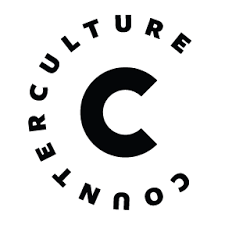
“Counter Culture is based in Durham, but sells its beans on its website, and wholesale to coffee shops around the United States. The North Carolina roaster believes in sustainable practices, embraces fully transparent business practices, and, of course, makes some truly delicious coffees. Unlike some specialty roasters, Counter Culture encourages its customers to make their versatile beans using any brewing method they want. They also offer free weekly coffee tastings and brewing classes at regional training centers in Durham and 10 other cities around the United States.”
- North Dakota – Twenty Below
- Website: http://20below.coffee/

“You can find Twenty Below’s single origin roasts and blends online, served up at coffee shops throughout North Dakota, and at their Fargo coffee bar and roastery. The coffee roaster works with small farms and cooperatives to acquire beans that can’t be found at larger coffee chains, and reviewers on Yelp have called their roasts “delicious,” “complex,” and “unique.”
- Ohio – Crimson Cup Coffee & Tea
- Website: http://www.crimsoncup.com/

“Crimson Cup Coffee & Tea may supply coffee to stores around the country, but it still roasts its beans carefully in small batches. Each shipment of 150-pound bags of coffee arrives at the Crimson Cup headquarters in Columbus, where a master roaster oversees the roast profile of each bean variety. The company, which won Roast magazine’s 2016 “Macro Roaster of the Year” award also hosts coffee tastings and roasting lessons at its Innovation Lab in Columbus.”
- Oklahoma – Elemental Coffee Roasters
- Website: http://elementalcoffee.com/

“Elemental Coffee Roasters in Oklahoma City is obsessed with serving up “elemental” coffee flavors. It puts an emphasis on retaining the natural flavors of its beans, and refuses to intentionally tamper with or add to its flavor. “You might say our coffee has a mind of its own,” the Elemental website explains. “It tastes this way one day, but it may taste completely different the next.” Elemental Coffee Roasters sells its coffees online and at its Oklahoma City location.”
- Oregon – Stumptown Coffee Roasters
- Website: http://www.stumptowncoffee.com/
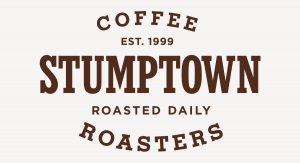
“Portland has a sea of high-quality coffee outfits, but Stumptown remains a favorite both locally and in cafes across the country. One of the pioneers of the third-wave coffee movement, Stumptown won Roast magazine’s Roaster of the Year competition back in 2006. The coffee-focused Sprudge.com calls the company’s Portland headquarters, which opened in 2012, “an absolute sight to behold.” The company hosts daily free tastings there, with $15 behind-the-scenes roastery tours and classes also available. If you do take a tour or an intro to coffee class, you get to take home your own bag of freshly roasted beans.”
- Pennsylvania – Square One Coffee
- Website: http://www.squareonecoffee.com/
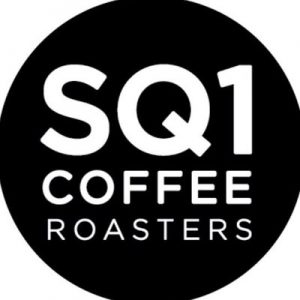
“Square One Coffee is a family-owned roasting company that has accumulated some serious accolades. The roastery has won a Good Food Award in the coffee category three years running, and one of its baristas won 10th place at the U.S. Barista Championships in 2015. Stop by the Lancaster café and sip a brewed-to-order cup in the backyard garden, or head to the roasting facility across town to take a class alongside the cafe’s own up-and-coming talent, led by instructors certified by the Barista Guild of America and the Specialty Coffee Association of America. (There are also two locations to enjoy in Philly.)”
- Rhode Island – Vanuatu Coffee Roasters
- Website: http://vanuatucafe.com/
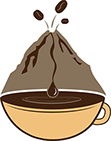
“Single-origin obsessives, pay attention. The beauty of Vanuatu Coffee Roasters lies in its absolute dedication to the South Pacific island nation that gives the roastery its name. Co-founder Jimmy Lappin traveled to the Republic of Vanuatu in 2009 as a tourist, and was so taken with the local coffee that he and his sister, Martha Soderlund, teamed up with a local cooperative to source beans exclusively from farmers on the island of Tanna. No need for milk here; Lappin boasts that Vanuatu coffee lacks any trace of bitterness.”
- South Carolina – Coastal Coffee Roasters
- Website: http://www.coastalcoffeeroasters.com/
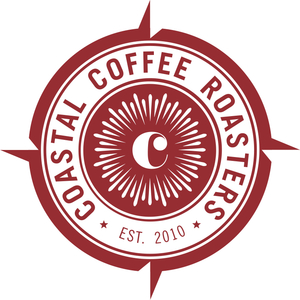
“Coastal Coffee Roasters, located outside Charleston, sources beans from around the world, then roasts them to perfection in small batches. The downtown Summerville café is host to a rotating calendar of events, including yoga, open mic nights, and local music—and they serve up a decent sandwich to go with that perfect cup.”
- South Dakota – Pure Bean Roasters
- Website: https://purebean.com//

“Pure Bean Roasters was started out of a garage in 2013, and the owners only opened up a café this year, continuing to roast their beans at co-owner Mark Royalty’s home long after the company began shipping nationwide. Pure Bean only sells organic, fair trade beans that are air-roasted in small batches, rather than in the high-capacity drums that most commercial coffee roasters use. Instead of being stirred in a hot drum, the beans float on a bed of hot air, ensuring consistency in the roast. The result is a smooth, low-acid cup of coffee.”
- Tennessee – Vienna Coffee Company
- Website: http://viennacoffeehouse.net/
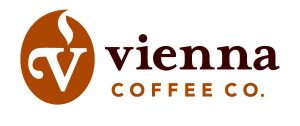
“Don’t head to Nashville for the state’s best coffee. Take a trip to the Vienna Coffee Company outside of Knoxville. The small-batch roaster has everything from single-origin and estate coffees to certified shade-grown, bird-friendly, Rainforest Alliance-approved, and fair-trade beans. If you aren’t in the area to come by for a free tasting, you can always sign up for their mail-order coffee club.”
- Texas – Brown Coffee Company
- Website: Visit browncoffeeco/
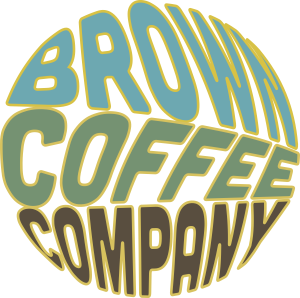
“Brown Coffee is one of San Antonio’s most well-established craft coffee outfits, and even other cafe proprietors admit that owner Aaron Blanco is “the most coffee-knowledgeable person in Texas.” In 2015, Food Network star Alton Brown called the drink he got from Brown Coffee “the best cup of coffee I’ve ever had in my life.” Beyond the delicious drinks, the PourLab hosts classes for a range of skill levels, from novices looking for basic tips to enthusiasts wanting to learn how to identify the type of soil coffee was grown in just from tasting the brew.”
- Utah – Millcreek Coffee Roasters
- Website: http://www.millcreekcoffee.com/
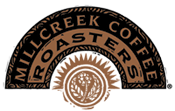
“Over two decades ago, the aptly named Brewster family founded Millcreek Coffee Roasters in a small building with one 12-kilogram roaster. Today they’re a major presence in the Salt Lake City coffee scene with a café, a wholesale store, and an outpost in the city’s airport. Coffee lovers who don’t have time to pick up their beans in person can shop for them online. Millcreek also offers “Roaster’s Choice” coffee subscriptions that are delivered each month by the pound.”
- Vermont – Vermont Coffee Company
- Website: http://vermontcoffeecompany.com/

“The folks at Vermont Coffee Company know that good coffee starts with a quality product. That’s why all their beans are carefully selected and slow-roasted to order in small batches. They also know that the coffee experience doesn’t have to end when a customer finishes their cup. They write on their website: “Coffee is a social stimulus that brings people together to share ideas and stories, and when people come together, a community is formed and friends are made.” The company proved their commitment to this concept when they opened a community theater in the neighborhood. If you can’t make it to the Vermont Coffee Company Playhouse or their on-site café, you can find their coffee in establishments along the East Coast.”
- Virginia – Cervantes Coffee Roasters
- Website: http://www.cervantescoffee.com/
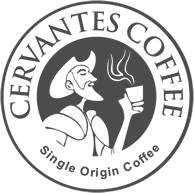
“Cervantes’s single origin coffee is sold in over 40 retail stores in Virginia, Maryland, Washington, D.C., and Pennsylvania. Java enthusiasts who live near their north Virginia headquarters can swing by for tours or coffee “cupping” (think wine tasting) events every second Friday of the month. The entire coffee warehouse is also available to rent out for private affairs”
- Washington – Dillanos Coffee Roasters
- Website: http://www.dillanos.com/

“In a state as obsessed with coffee as Washington, Dillanos Coffee Roasters has managed to rise to the top. They’ve been recognized as best in the region multiple times, and in 2011 Roast magazine named them the best macro coffee roaster in North America. With dozens of coffees of varying roasts and sources available to purchase, they offer something for every type of coffee connoisseur.”
- West Virginia – Black Dog Coffee
- Website: http://blackdogcoffee.net/
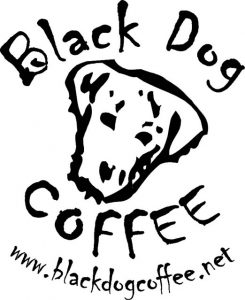
“Black Dog’s café in Shenandoah Junction offers coffee and a show. Patrons can come to see one of America’s oldest operating coffee roasters in action—a vintage 1931 Jabez Burns & Sons model named Plutonius. The business also hosts community events like yoga classes, drum circles, and taco Tuesdays. Even without the entertainment factor, a taste of their single origin, micro-roasted coffee is worth a trip (or at least an online order).”
- Wisconsin – Kickapoo Coffee Roasters
- Website: http://kickapoocoffee.com/
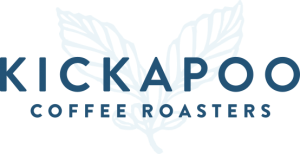
“Beer isn’t the only brew in Wisconsin that deserves attention. The team behind Kickapoo Coffee Roasters has been roasting high-quality, full-flavored coffee in Milwaukee since 2005. Once a month, they open up their tasting room for the public to sample offerings, tour the roastery, and ask any coffee-related questions they may have.”
- Wyoming – Jackson Hole Coffee Roasters
- Website: http://www.jacksonholeroasters.com/

“Jackson Hole Coffee Roasters brings a European commitment to coffee to Western Wyoming. Owners Stefan and Lubomira got their start in the coffee business as baristas. They took over Jackson Hole Coffee Roasters after moving to the U.S. from Slovakia, and today they sell their coffee wholesale to restaurants, coffee bars, and specialty stores and serve it fresh at their café.”
Full credit to source- Mental Floss and authors Michele Debczak, Kirstin Fawcett, Shaunacy Ferro, Anna Green, Kate Horowitz, Jake Rossen, and Jeff Wells.
Now that we’ve chatted about the best coffee bean roasters in America, let’s discuss the most popular methods of actually making the coffee! Full credit to the below excerpt attributed to Drip Coffee Makers Review.
Most Popular Coffee Types in the USA
Drinking coffee may be considered a habit, but to many it is almost like an addiction. We just can’t seem to get our brains working in the morning without a good cup ‘o joe! When that deep robust flavor hits our palettes, our juices begin to flow, our brains begin to wake and our bodies are ready to take on the day.
Over the years this marvelous beverage has grown in popularity and has been developed into a variety of flavors. The way coffee is prepared has grown and developed over the years, as well. The most popular types of coffee include the standard brewed coffee from a drip coffee maker, Espresso, Cappuccino, Americano, Caffe Latte, Turkish Coffee and Macchiato.
A true coffee aficionado may have tried all of the different types and may even be able to tell you exactly where the bean was grown and how it was roasted. But, most of us get used to a certain type and never try anything different.
Once you learn more about the popular types of coffee available, you may just be tempted to broaden your horizons and give them a try!
- Brewed / Drip Coffee
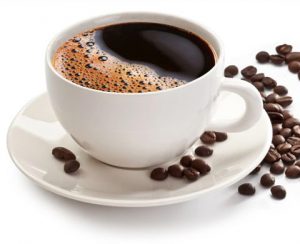
Brewed coffee made in a drip coffee maker is one of the most popular types. One of the reasons is because the ground coffee is inexpensive to buy and the coffee makers used to brew the beverage are also very inexpensive.
You simply put the coffee grounds in the basket (with or without a filter, depending on your machine) add water and turn on the coffee maker. The coffee maker heats the water and slowly drips it through the grounds to release all of the rich coffee flavor. How quickly the water heats and drips also depends on your machine. On average, it takes about five minutes to brew a pot of coffee.
Many coffee makers can be pre-programmed to begin brewing at a certain time. This is extremely useful for those of us that can’t function at all until after our first brew!
Read more about the best drip coffee makers by clicking here!
Espresso is a true “power jolt” of energy – just like the name suggests. Espresso means “express” in Italian. To make this type of coffee, a small amount of water, brought almost to the boiling point, is forced under pressure through finely ground coffee beans.
The ratio of water to ground coffee is much less than with typical brewed coffee, making espresso much thicker. This is due to the higher concentration of dissolved and suspended solids, which also increases the concentration of caffeine. A distinctive characteristic of espresso is the foamy cream-like topping!
The creation of espresso coffee is generally attributed to Angelo Moriondo who, in 1884, patented a steam-driven “instant” coffee making device. The machine was touted as “an Italian bar machine.” This early invention might have been quite unique for its time, but it didn’t brew individual cups like the machines of today.
Many improvements were made to the design over the years. Additionally, many other types of coffees were invented based on the idea of the espresso machine and the unique coffee it produced. For example, cappuccino is basically an espresso with milk or cream. Other popular types of coffee used espresso as the base to develop other flavors.
Because espresso machines were very expensive at the time, coffee shops began popping up all over the place. Coffee bars (cafés) became almost as popular as bars that served alcohol! Aside from the expense of the machines, operating an espresso machine was also a big factor. Today, home espresso machines are available that anyone can afford and operate, but at first, you had to be a highly trained barista to make a good espresso.
Although cappuccino is an immensely popular drink in the western world today, it began as an Italian coffee beverage. It was traditionally prepared using espresso, hot milk and hot steamed milk foam. As a derivative of espresso, this popular beverage was basically created to cater to people that liked cream in their coffee.
Cappuccino is named after the Capuchin friars, known as such because of the color of their habits. Apparently, they preferred cream with their coffee. It is believed that until this time, coffee was always served black.
People of Vienna named the drink Kapuziner in the 19th century. Their version of the hot beverage used whipped cream which, according to historical records, the Italians found too heavy.
Cafè Americano (also known as Americano or American coffee) is basically hot water added to espresso. Although many of us think we want a good jolt of caffeine to start our day, espresso can be too powerful. By adding a good shot of hot water, the full espresso flavor is preserved, but at a diluted dose of caffeine.
An Americano has about the some level of caffeine as the drip coffee you get from your home coffee maker, but has the full bodied flavor of an espresso from the local café. Whether you make it at home with your own espresso machine, or buy it at your local café, you can decide the strength – espresso to water ratio.
However, be careful when ordering from a café – if you add water to the espresso (espresso on the bottom), it is an Americano, BUT, if you add espresso to the hot water (putting the espresso on top), it is known as a long black.
Caffé latte is a superb beverage based on the flavor of coffee. It is basically an espresso with steamed milk. This special coffee consists of 1/3rd espresso, 2/3rds hot or steamed milk and approximately 1cm of luscious foam. The skill of the barista determines how the top of your latte will look. He can create all sorts of fascinating art work with the foam. The most common pictures created are ferns, swirls and hearts, but if the barista isn’t too busy, you may be able to order a unique design created especially for you.
Caffè macchiato, often referred to as espresso macchiato, is also espresso with a twist. The espresso is served with a small drop of milk, today the milk added is usually foamed first. Macchiato is the Italian word for “spotted” or “stained.” Therefore, literally translated, caffè macchiato is coffee with a spot of milk, or “stained” coffee.
Macchiato is served hot or cold, whichever you prefer. Another version is latte macchiato, which means milk with a spot of espresso, rather than espresso with a spot of milk. This version is very similar to a caffé latte.
Why not get your hands on your very own coffee maker for your office or your home? Get in touch with us today, fill out the contact form below.
[caldera_form id=”CF5730575f19c0a”]
